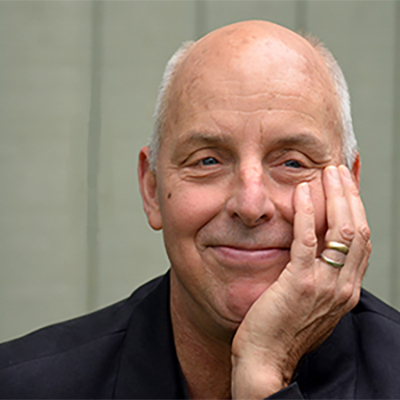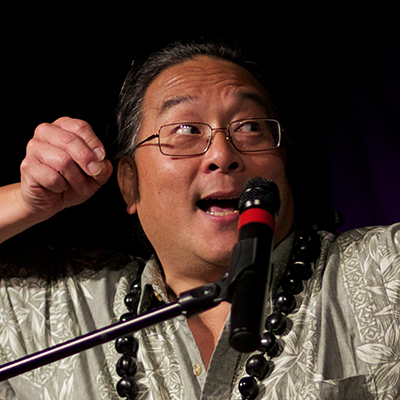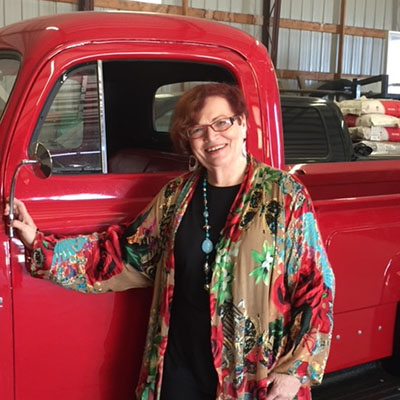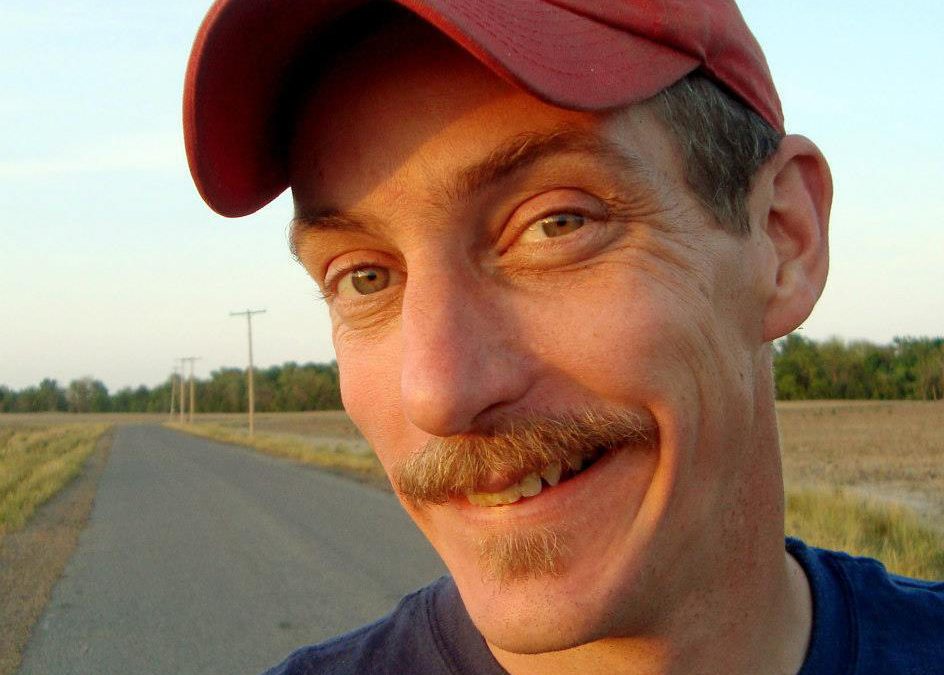
by Sharon Haddock | Aug 20, 2021 | Blog, Featured, Festival, Scheduled, Storytellers
Bill Harley likes how spoken words and music go together, creating a kind of magical connection.
They always have, Harley says.
So he blends words and music in his storytelling to educate and to create community.
“At times, I feel like I’m a conduit for something larger than me,” Harley says. “I started telling stories in performance while I was in college, when I became interested in oral traditions.
“During that time, I was also working with children in after-school programs and a day camp.
“I was intrigued and amazed by the effects a told story had on unruly campers.”
Something happens in a room where everyone is listening to the same story, Harley explains. “There’s a web of connection that is built—a gathered presence. This is different from performance on other media. I’ve said before that I view storytelling as an intimate response to an impersonal culture.
“Connecting with the audience involves being present—aware of the story, aware of my own actions and senses, and aware of the people in the space with me. There’s an inherent vulnerability in this presence, and that vulnerability is what makes a teller authentic—someone the listener can trust.
“When I have told a story for a while, it takes on a life of its own,” Harley explains, whether it’s a story about sitting down to eat with a house stuffed with animals or a yarn about pirates who steal all the socks and underwear.
Bill Harley is considered by fans and peers to be one of the best storytellers in the country, a celebration of commonality and humanity, delivered through comic narrative songs and spoken pieces.
Over the past 40 years, his work has influenced generations, touring nationally as well as internationally with his guitar, song, and hallmark humor.
He has produced 35 award-winning recordings and has been described as the “Mark Twain of contemporary kids’ music.”
The Rhode Island Council for the Humanities noted the core of his work as building community; promoting our common humanity; and encouraging lifelong learning, exploring, and growing.
His newest work is a series about the trials and tribulations of fourth grader Charlie Bumpers. The first book in the series won the Beverly Cleary Children’s Choice award.

by Sharon Haddock | Aug 16, 2021 | Blog, Featured, Festival, Scheduled, Storytellers
Storyteller Alton Chung believes in connecting with others.
When he tells a story, he is 100 percent present—not worrying about dinner or laundry or bills.
“It is my belief that in our current society, we don’t get much of that kind of focused attention,” he explains.
“We are too busy checking our phones or thinking up a response to something someone said, instead of truly listening to them.
“I believe that there is a human need, a hunger for that level of connection.
“When I perform in a school and am present, I have observed that kids react to that.”
Chung has told stories for 18 years, stories from the Japanese experience in World War II, Asian folktales from around the Pacific Rim, and stories based on the Hawaiian Monarchy.
He got into storytelling somewhat by accident.
“I got into storytelling because I took a class from a local bookstore. I used to live in a small town in Oregon and I knew the owner of the local bookstore. I was reading his newsletter in his shop and asked him about an ad for a storytelling class. He said he had found a Post-It note on his desk with all the info about the class. He put it into his newsletter and then got a call from the lady on the note. She said she guessed she was teaching a class. It turned out that the Post-It note had been floating around on his desk for a year.”
He took the class, told a story that impressed the teacher, and it has been a wild ride since.
“I believe that most of us have learned to some extent to close ourselves off to protect ourselves from anyone who might want to do us harm. I have observed that it is difficult to connect with anyone when I am hiding behind my shields,” Chung said. “There is a heart connect, which is established when I lower my defenses, open myself up, and feel into the audience.
“It is a matter of relaxing, trusting and opening myself up to what is there. I focus on being present and try to look into the eyes of everyone in the audience.
“It is scary and thrilling at the same time.”

by Sharon Haddock | Jul 30, 2021 | Blog, Featured, Festival, Storytellers
If you head into a maximum security men’s prison to tell stories, take along your sense of humor, and it’s a top idea to bring along an electric teapot and a variety of teas and sugar!
That’s what Geraldine Buckley—one of the storytellers slated to be on the roster at the 32nd annual Timpanogos Storytelling Festival—advises.
Buckley has been telling stories and serving tea at prisons in the United States and New Zealand for years.
In the prison, she made it a point to remember the inmate’s favorite and how many sugars to add.
“I go where angels fear to tread,” Buckley says. “Some of the scariest things reap the greatest rewards.”
British-born Buckley has told stories, held workshops, and coached for 30-plus years in the United States, Canada, England, South Africa, Holland, Spain, and New Zealand.
Until 2010, she was the Protestant chaplain at the largest men’s prison in Maryland.
“Was I ever scared? I was terrified! I thought, ‘What on Earth am I doing? I wanted to appear cool. So I said, ‘There are not murderers or rapists here, are there?’”
She was told there were about 200 of them! Two hundred prisoners who brought her tea from their daily rations.
So she brought her teapot and started serving tea, hundreds of cups of tea, over the next five years.
She brought in bottles of bubbles and big, beefy men joined in the bubble-blowing.
“We became a community,” she said. “Something happened to me then. I wanted to go in bringing love and laughter—without fear, without judgment. I am so glad I did it! It was my season.”
Her stories of telling stories in prisons are compiled in her CD: “Tea in the Slammer.”
She’s also written and told stories about observing patients in hospitals with COVID-19 in “Pandemic Parables.”
She’s popular at festivals in the United States, England, South Africa, Spain, and New Zealand.
She has a Master’s degree in Communications from Regent University.

by Sharon Haddock | Jul 26, 2021 | Blog, Featured, Festival, Storytellers
If you listen to Bil Lepp long enough, you know he changes tires on planes while they are in the air. He can pick up a bit of conversation and turn it into a tale that wraps itself around the world.
And he comes by it naturally.
“I come from a long line of people who stretch the truth. As far back as I can remember, people in my family lied . . . in a good-natured way,” says Lepp.
“In the 1990s, I entered the West Virginia Liars Contest, having no idea that a person could be a professional storyteller. I just liked doing it.
“Around 1998 I saw Ed Stivender perform and was blown away. As soon as I saw Ed, I knew I wanted to be a professional storyteller.
“I did a 15-minute spot at the National Storytelling Festival in 2000, and the first big festival to sign me up as a full-blown teller was Timpanogos (Storytelling Festival), in 2001. The rest is history.”
“I love storytelling because I love taking an idea, creating a story around it, and then watching the audience enjoy it.”
Lepp says all good storytelling is conversation.
“I’m not talking at the audience, I’m talking with them.
“That’s why I like to see my audience, so I can gauge my pace, style, jokes, and story choice based on how the audience reacts.
“My stories come out of my mouth in a direct reflection of the audience experiencing them,” he said.
That’s why online telling during the Pandemic was hard for him.
“I so loathed online telling during the shutdown. I couldn’t get a handle on how the audience was reacting,” Lepp explained.
He uses common experiences and builds on audience response, sometimes taking a story in several directions before he comes back to the original thought, with hilarious and deliciously surprising results.
“I try to tell stories about topics my audience has something in common with. It doesn’t matter if you grew up in a big city or a small town or on a deserted island—we were all kids once. I try to start at a point that has as many opportunities as possible for the audience to connect with what I am saying, and draw on their own experiences.”
Lepp is a favorite at the Festival which is in its 32nd year scheduled from Sept. 9-11 at Thanksgiving Point in Lehi, Utah.




